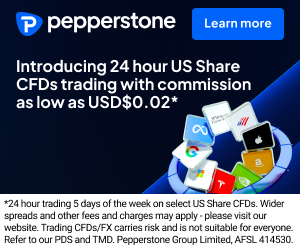Discover if Big Boss is a reliable broker for crypto trading in 2025. Account from $1 USD, no commissions, and MT4/MT5 platform for active traders.
REVIEW OF DBS VICKERS: INVESTING WITH DBS
Looking to invest through the Singapore Exchange (SGX) but not sure where to begin? In this article, we explain who this broker is, how they operate in Singapore, and what services they offer to support your investing journey.
We’ll guide you through the account opening steps, the range of instruments you can trade, and what to keep in mind if you're just starting. A clear and accessible guide to investing in the local market with confidence.

How to Invest in the Stock Market with DBS Vickers
DBS Vickers is the brokerage arm of DBS Bank, offering seamless integration between banking and trading. Through their digital trading platforms, you can access Singapore stocks, international markets, ETFs, and bonds.
If you’re a DBS customer, opening a DBS Vickers account is straightforward and can be linked to your existing bank account. You’ll also need a CDP account to hold your SGX-listed shares.
DBS Vickers is a strong option for investors who prefer a familiar banking environment and want to consolidate finances and investments under one roof.
What Are Stockbrokers and How Do They Work?
In Singapore, stockbrokers (also known as trading representatives or brokerage firms) are licensed intermediaries who facilitate the buying and selling of securities — such as shares, ETFs, bonds, and derivatives — on behalf of investors. They operate through the Singapore Exchange (SGX) and are regulated by the Monetary Authority of Singapore (MAS).
Stockbrokers are essential to our capital markets ecosystem. Whether you are a retail investor doing it yourself, or a high net-worth client needing advice, brokers help you access local and global financial products safely and efficiently. Here's how they work, lah:
Execution of Trades: Brokers place buy and sell orders for listed securities such as SGX stocks, REITs, government and corporate bonds, ETFs, and structured products. Orders can be placed via online platforms or through a trading representative.
Licensing and Compliance: All brokers must hold a Capital Markets Services Licence and be approved by MAS. They are required to follow strict compliance rules, including client fund segregation, risk controls, and transparent reporting.
Advisory vs Self-Directed Investing: Clients can choose between full-service brokers offering personalised advice, or online brokerages that provide low-cost, DIY investment access. Up to you — depends on your comfort level and portfolio size.
Market Coverage: Besides SGX, many brokers in Singapore also give you access to regional and global markets like NYSE, NASDAQ, HKEX, and ASX. One account, many markets — very convenient, right?
Settlement and Custody: Local trades are cleared via CDP (Central Depository), and your securities are held in your CDP account. For overseas markets, holdings are often in custodian accounts under the brokerage’s nominee structure.
Who They Serve: Brokers in Singapore work with retail investors, family offices, corporate clients, and institutions. Whether you’re investing $500 or $5 million, got options to suit your needs and goals.
Fees and Charges: Brokerage fees depend on the platform and service level. Online-only platforms are cheaper, while full-service brokers may charge per trade or offer bundled wealth management packages.
Tradable Instruments on the Singapore Exchange
Known for its strong regulatory standards, high liquidity, and global investor access, SGX supports both long-term portfolio building and short-term trading strategies.
Regulated by the Monetary Authority of Singapore (MAS), SGX operates a multi-asset platform that includes equities, bonds, derivatives, and REITs. Investors in Singapore and abroad can access the following key tradable instruments on SGX:
Equities (Shares): SGX lists stocks from leading Singaporean and regional companies in sectors such as banking, real estate, consumer goods, logistics, and telecommunications. Investors can trade ordinary shares to gain exposure to dividend income and potential capital appreciation. Trading is conducted via the SGX trading engine, with settlement handled by CDP (Central Depository).
Real Estate Investment Trusts (REITs): Singapore is one of Asia’s largest REIT markets. SGX-listed REITs invest in commercial properties like offices, retail malls, industrial parks, and hospitality assets. REITs pay regular distributions from rental income and are popular among income-seeking investors and retirees.
Exchange-Traded Funds (ETFs): ETFs on SGX provide diversified exposure to indices, commodities, bonds, and sectors such as technology or ESG (Environmental, Social, and Governance). These instruments allow for cost-efficient investing and are commonly used by both passive and active investors.
Structured Warrants and Daily Leverage Certificates (DLCs): Structured warrants and DLCs allow investors to gain leveraged exposure to selected SGX or international stocks and indices. They are designed for sophisticated investors with a higher risk appetite, offering amplified returns and intraday trading opportunities.
Derivatives: SGX is a regional leader in derivatives trading, offering futures and options on equity indices (e.g. MSCI Singapore, FTSE China A50), interest rates, and commodities. These products are widely used for hedging, risk management, and speculative strategies by institutional investors and hedge funds.
Bonds and Fixed Income: SGX provides access to corporate and sovereign bonds listed for retail and wholesale investors. These include SGD-denominated bonds from local firms and global issuers. Bonds offer regular interest payments and are suited for capital preservation and steady income.
SPACs (Special Purpose Acquisition Companies): SGX is one of the few Asian exchanges to allow SPAC listings. These vehicles raise capital to acquire or merge with a target company. SPACs are designed for investors seeking early access to growth-stage businesses via public markets.
Depository Receipts: SGX also offers depository receipts such as the SGX-ST listed Lion-OCBC Securities China Leaders ETF, which tracks offshore equities or international instruments. These provide cross-border investment access while remaining listed in Singapore dollars.
YOU MAY ALSO BE INTERESTED





